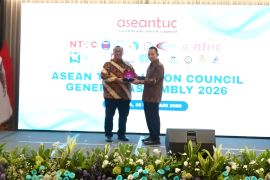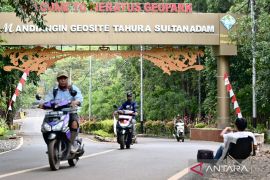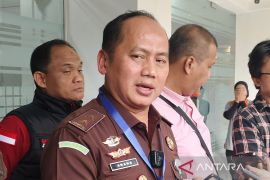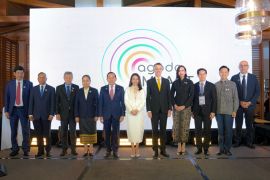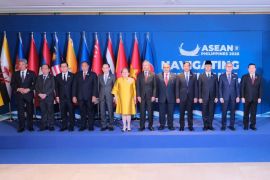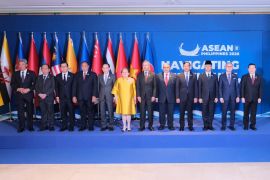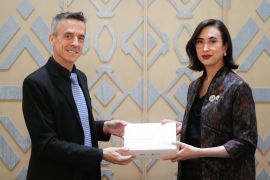"During these two days, ASEAN Plus three (China, Japan and South Korea, agree on agriculture and forestry cooperation," AMAF`s Senior Officials Meeting Chair Achmad Suryana said on the sidelines of the meeting.
The senior officials also agreed on the ASEAN Plus Three Emergency Rice Reserve (APTERR) and the agreement would be signed by the ASEAN+3 ministers on October 7, he said.
Under the APTERR program, ASEAN will have rice reserve totaling 787,000 tons of rice, according to Ahmad, who is also the director of the National Food Security Agency.
For the program, Indonesia will contribute 12,000 tons, China 300,000 tons, Japan 200,000 tons, and South Korea 150,000 tons.
ASEAN+3 members countries affected by natural disasters such as floods and mount eruption could contact the APTERR Secretariat to get the rice, he explained.
President Susilo Bambang Yudhoyono in the ASEAN Summit in May 2011 had suggested that the rice reserve not only provided in natural disaster emergency but also economic upheaval.
"We have noted that it (the proposal) is very important for discussion further, but on October 7, the agreement will only concern natural disasters," Ahmad said.
In 2012, Indonesia planned to increase its contribution for the APTERR program to 25,000 tons.
ASEAN Ministers of Agriculture and Forestry (AMAF) and AMAF Plus Three meetings are being organized here from October 3 to 9, ahead of a major ASEAN Food Security Conference under the theme "Facilitating Food Trade & Investment, Advancing Food Security".
In addition, the first Meeting of ASEAN-India Ministers on Agriculture will take place on 7 and 8 October in Jakarta.
On top of the Ministerial agenda, food security through the implementation of the ASEAN Integrated Food Security (AIFS) Framework adopted by the ASEAN Leaders in 2009 will be discussed in order to review progress and achievement and set course of future actions.
The Ministers will be having a dialogue with representatives from the private sector in order to exchange views and future directions to promote public-private partnership in addressing food security. (*)
Editor: Aditia Maruli Radja
Copyright © ANTARA 2011
